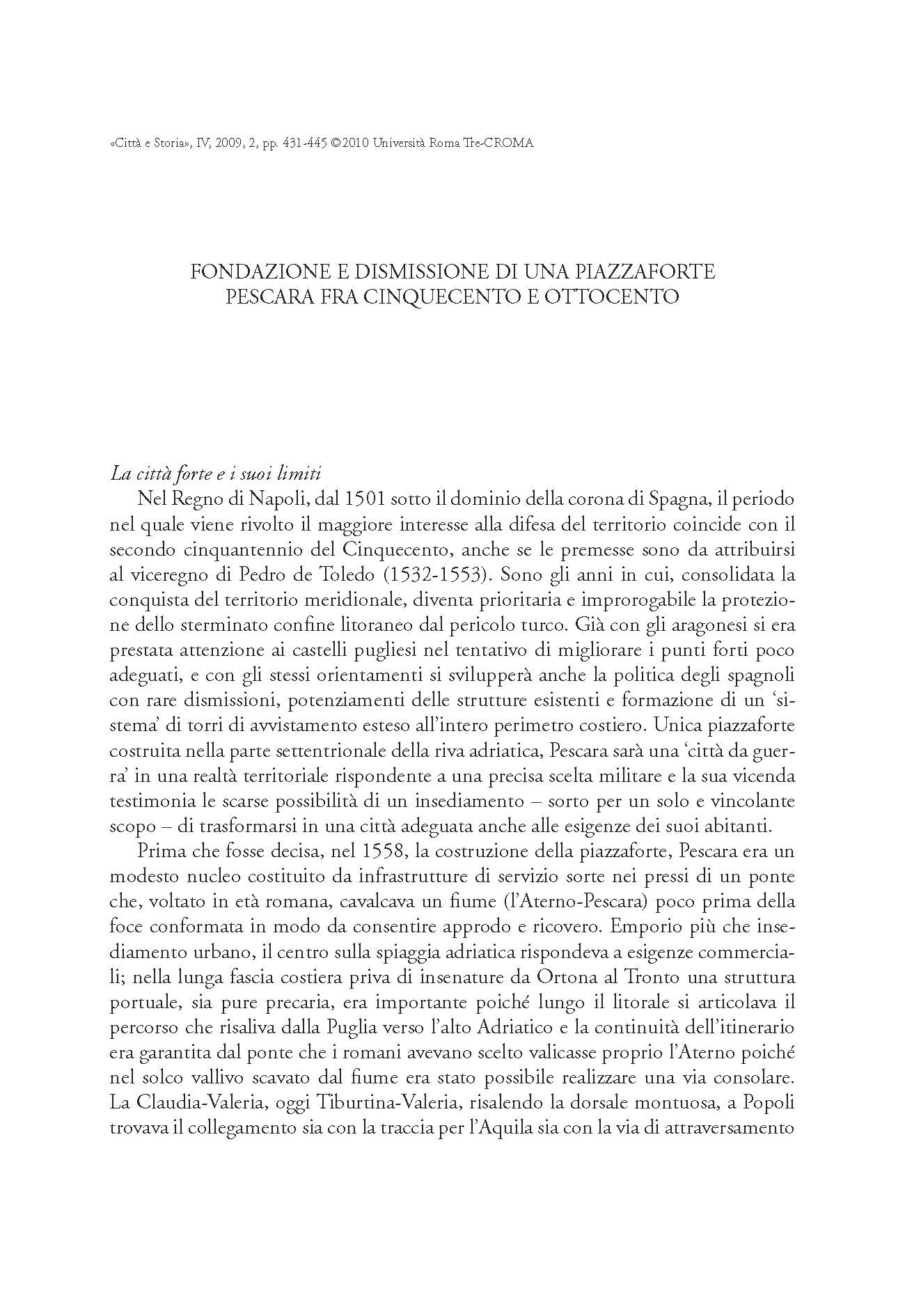Fondazione e dismissione di una piazzaforte. Pescara fra Cinquecento e Ottocento
6,00 €
The building of the only fortress erected by the Spaniards during the Kingdom of Naples can be traced back to the 5th decade of the 16th century. It was in a strategic position, along the Adriatic coast of Abruzzo Citra. The history of the «Pescara stronghold», from its building to its total destruction, is significant evidence of the difficulties encountered during the setting up, development and existence of this centre, designed exclusively for war.
Pescara encountered all the problems generally associated with towns, in terms of defensive needs. Its inhabitants suffered the limitations derived from the application of strict rules, which not only hindered the improvement of the population’s living standards, but also established unbearable rules and prohibitions. The intolerance of the inhabitants towards the stronghold, which did not expand like many other military settlements, and was therefore inadequate for any new war strategies, can be seen in their enthusiasm when the military restrictions were abolished (1866). As a matter of fact, the citizens of Pescara and the local administration contributed greatly to the dismantling of walls, ramparts and old buildings, as if prompted by the desire to erase the memory of the fortress and its restrictions, symbols of a past entirely centred on the policy of war.
The building of the only fortress erected by the Spaniards during the Kingdom of Naples can be traced back to the 5th decade of the 16th century. It was in a strategic position, along the Adriatic coast of Abruzzo Citra. The history of the «Pescara stronghold», from its building to its total destruction, is significant evidence of the difficulties encountered during the setting up, development and existence of this centre, designed exclusively for war.
Pescara encountered all the problems generally associated with towns, in terms of defensive needs. Its inhabitants suffered the limitations derived from the application of strict rules, which not only hindered the improvement of the population’s living standards, but also established unbearable rules and prohibitions. The intolerance of the inhabitants towards the stronghold, which did not expand like many other military settlements, and was therefore inadequate for any new war strategies, can be seen in their enthusiasm when the military restrictions were abolished (1866). As a matter of fact, the citizens of Pescara and the local administration contributed greatly to the dismantling of walls, ramparts and old buildings, as if prompted by the desire to erase the memory of the fortress and its restrictions, symbols of a past entirely centred on the policy of war.

